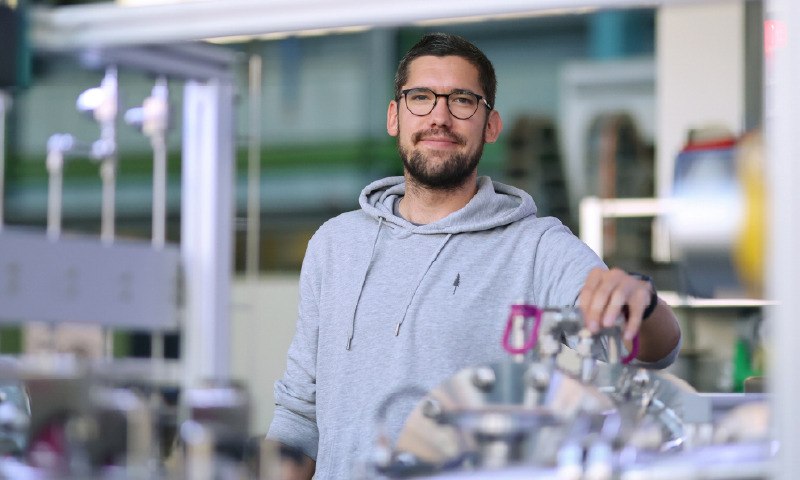Key Technology: Hydrogen
Co-Creation – HC-H2 Network
How the Rhenish Mining Region is becoming a hub for climate-friendly energy supply.
June 2025
Model Region for Climate-Friendly Technologies
The Rhenish mining region is undergoing one of the most significant transformations in its history. Where lignite once formed the backbone of the local economy, hydrogen is now set to play a central role in the future. Making this possible is the Helmholtz Cluster for a Sustainable and Infrastructure-Compatible Hydrogen Economy (HC-H2) – an initiative that brings together science and industry.
The ambition is bold: the Rhenish region aims to become a model region for climate-friendly technologies. Hydrogen is seen as a key technology — not just for local energy supply, but for the energy transition as a whole. "There are many people, companies, and research institutions working to turn the region into a showcase for new technologies," says Fabian Patzak, Head of the Hydrogen Network NRW at HC-H2.
“Our role is to connect these stakeholders, raise the visibility of their projects, and facilitate collaboration.” Fostering Collaboration: A key component of the network is its free membership. Whether start-up, SME, or large corporation – HC-H2 aims to provide a platform for cooperation to as many stakeholders as possible. “Achieving more together” is the network’s guiding principle. Free registration is available at Network - HCH2, where you'll also find more information about the Hydrogen Network NRW.

»Especially in such a young industry, sharing knowledge and leveraging synergies is essential.«
The team behind the HC-H2 Hydrogen Network NRW (from left to right):
Head Fabian Patzak, along with Vanessa Düster and Severin Foit from
the specialist team.
"Especially in such a young industry, it is essential to share knowledge and harness synergies,” explains Vanessa Düster, project officer on the network team. Only through close collaboration, she says, can technologies be developed that are both environmentally sound and economically viable. This approach is backed by substantial public funding.
By 2038, the German Federal Ministry of Education and Research and the state of North Rhine-Westphalia will invest over one billion euros in building up the cluster and the Institute for a Sustainable Hydrogen Economy (INW) at Forschungszentrum Jülich — the core of HC-H2. The cluster is not only intended to generate new technologies but also to rapidly translate them into industrial applications.
The focus lies on projects being tested directly in the Rhenish region — in pilot plants, real-world laboratories, or industrial partnerships. “The insights and developments gained here are meant to serve as a model for other regions as well. Our goal is to accelerate the hydrogen economy across Germany,” says Severin Foit, project officer on the network team.
Sign up for the HC-H2 Network
Structural Transformation in the Rhenish Region
Image credit: Ralf-Uwe Limbach / Forschungszentrum Jülich
Dive deeper into the current issue
When research, industry, and society unite their perspectives, they create solutions greater than the sum of their parts.
In the Endeavours magazine, discover how co-creation works — through real stories of collaboration, pioneering spirit, and successful transfer.








